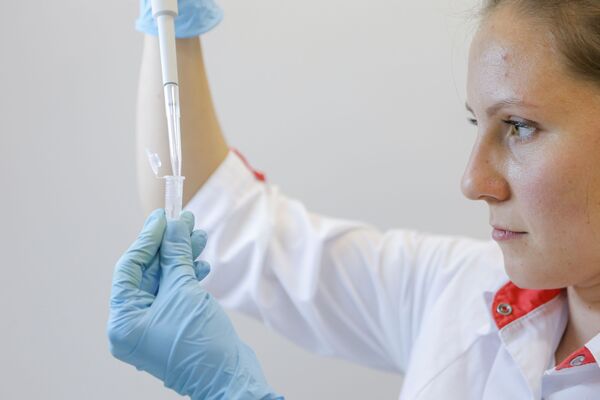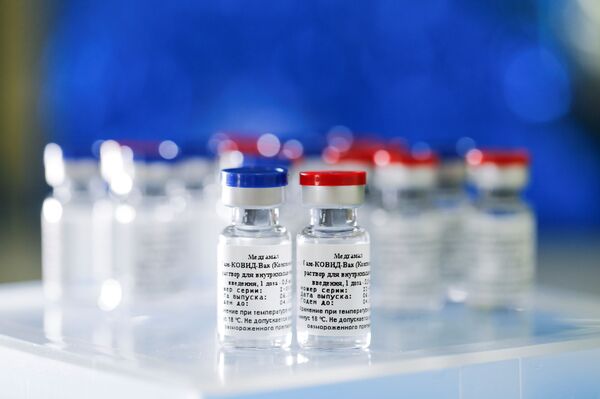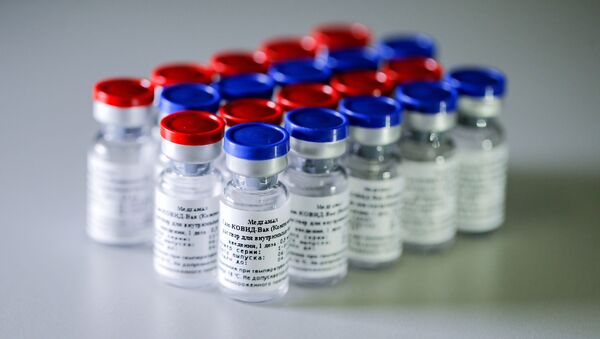Mass vaccination against coronavirus in Russia will start in approximately a month's time, after enough vaccine samples are produced, the director of Gamaleya Research Institute of Epidemiology and Microbiology, Alexander Ginzburg, told Sputnik.
Earlier Ginzburg revealed that the Russian anti-COVID-19 vaccine, dubbed Sputnik V, will undergo post-registration studies, that will take place over the courses of 7-to-10-days. Tens of thousands of people will participate in this research.
"Mass vaccination will be with some delay, only due to the fact that the main part of the produced vaccine will subject to post-registration studies. After that, the rest of the products will be for civilian sales. There will be a delay of 2-3 weeks, maybe a month," the head of the institute explained.
According to the scientist, post-registration studies of the vaccine could take up to six months.

This week, Russia registered the world’s first vaccine against COVID-19, as announced by President Vladimir Putin during a government meeting on Tuesday. Following his announcement, Putin noted that Sputnik V has proven its effectiveness following several rounds of trials during which volunteers managed to develop a "stable immunity". He also revealed that one of his daughters had already tried the vaccine and "feels good" now following two injections, which endowed her with a "high" level of antibodies.
The vaccine was developed by the Gamaleya Research Institute in cooperation with the Russian Defence Ministry. It underwent clinical trials in two Russian institutions, the Burdenko Main Military Clinical Hospital and the Sechenov First Moscow State Medical University. Two groups of volunteers were discharged from medical facilities on 15 July and 20 July after developing an immunity to SARS-CoV-2.

Sputnik V is expected to be produced at two sites - the Gamaleya Research Institute and the company Binnopharm, according to Russian Health Minister Mikhail Murashko.
"The two-stage injection plan helps form a lasting immunity. The experience with vector vaccines and two-stage scheme shows that immunity lasts for up to two years," the Health Ministry earlier said.
The vaccine, which has two separately-injected components, is said to be recommended for individuals aged from 18 to 60 years old. Murashko also said on Friday that Russia will soon release information about the vaccine's pre-clinical and clinical trials to cast away criticism from the international community in regards to an apparent lack of data related to its safety testing.



